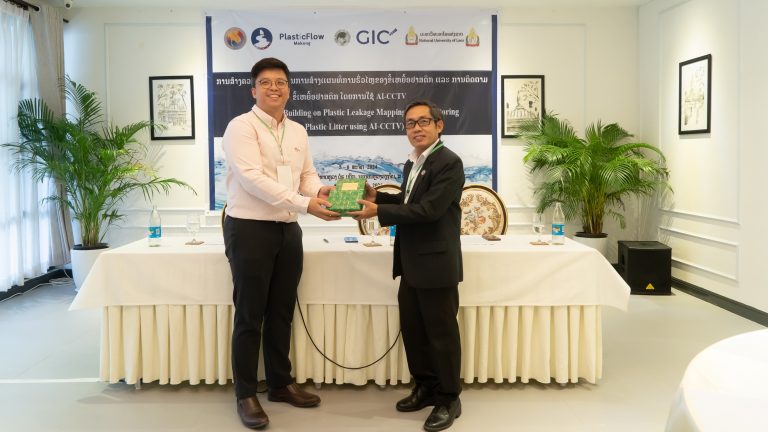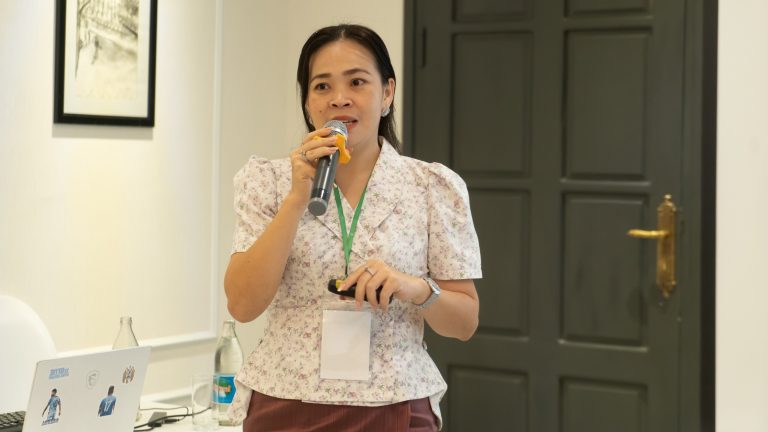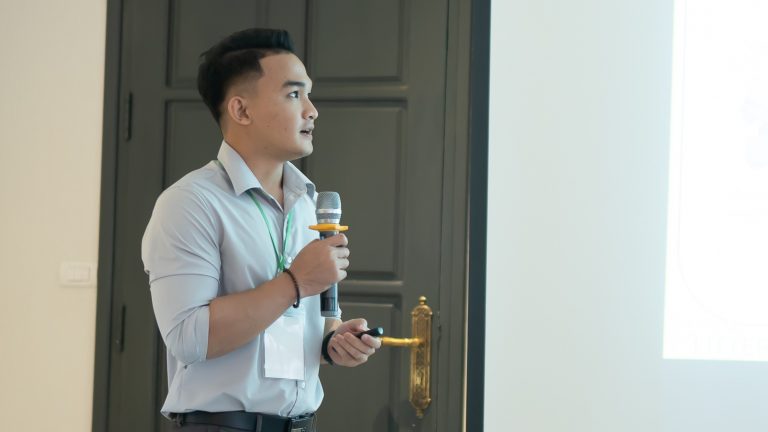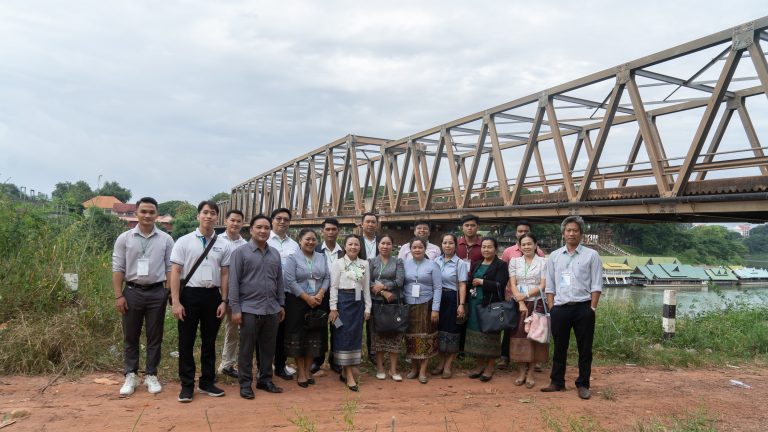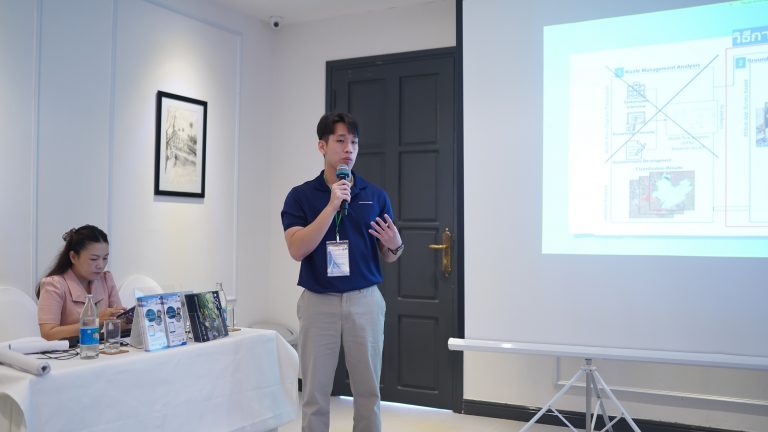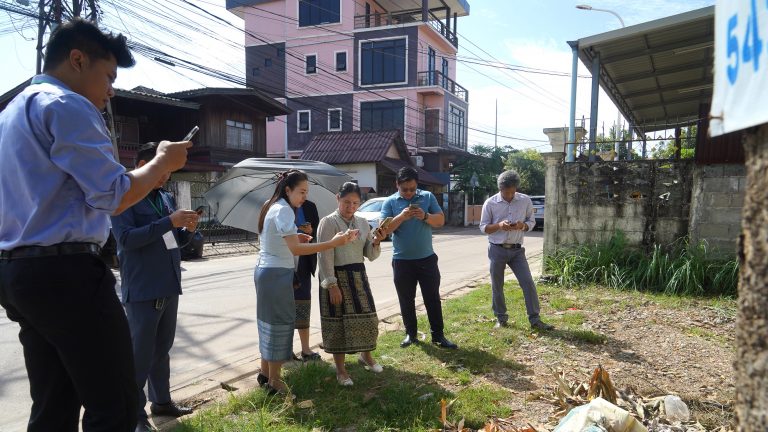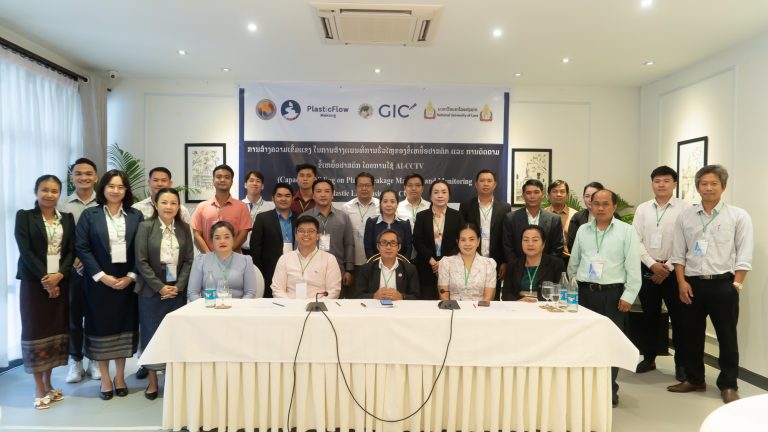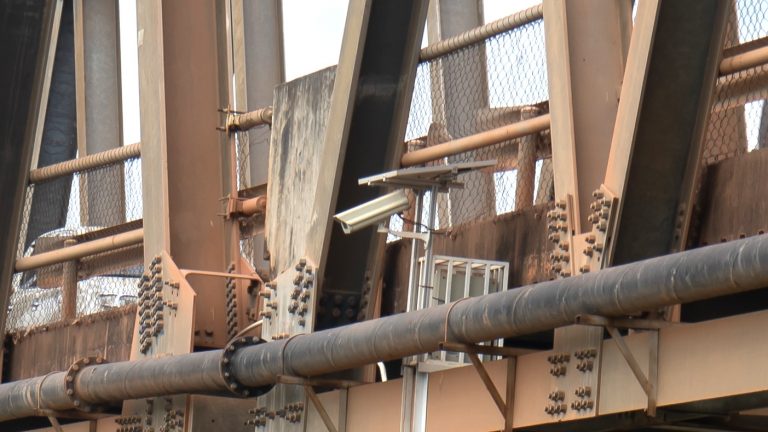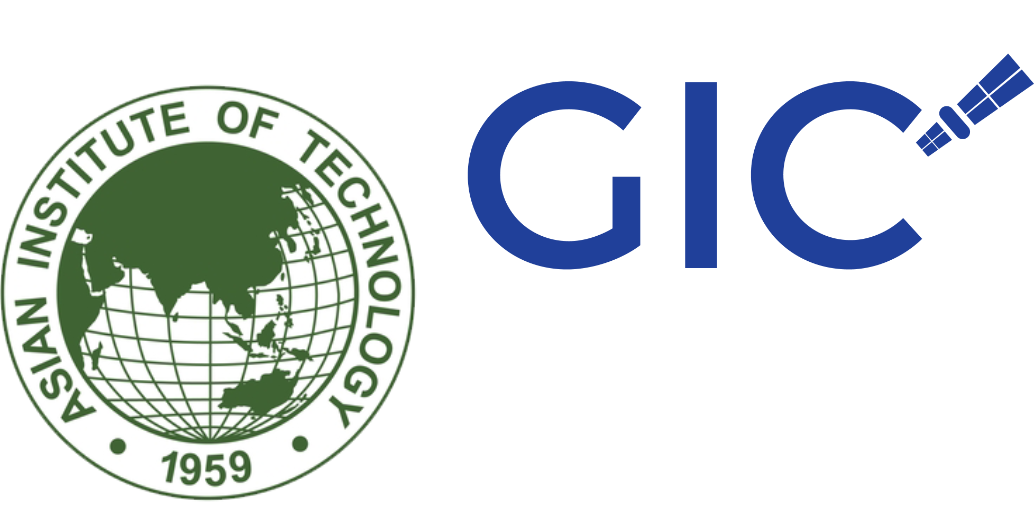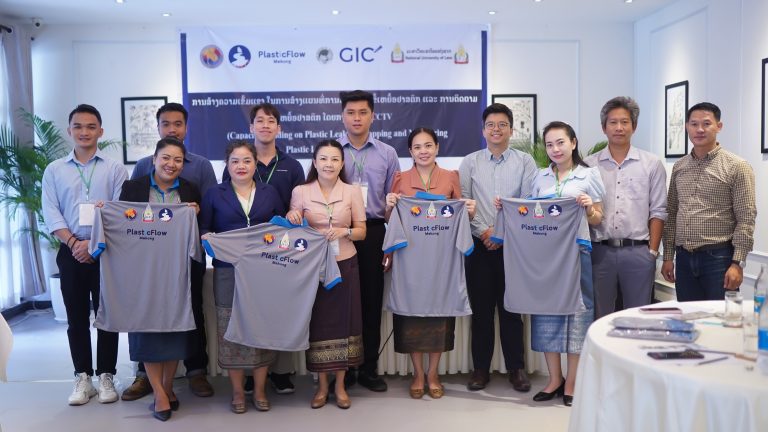
Overview
GIC organized a two-day training workshop on Plastic Leakage Mapping and Monitoring Plastic Litter using AI-CCTV, in collaboration with our Laos partner National University of Laos (NUOL) in Vientiane, Lao PDR. This was the second workshop series under the ongoing Plastic Flow Mekong project funded by the Mekong-Republic of Korea Cooperation Fund. The workshop aimed to enhance the skills of the local team and waste management staff. Participants learned to utilize AI-enabled CCTV systems and geospatial tools, including Citizen Science and a Survey Mobile App, to monitor plastic leakage and manage waste more efficiently and effectively.
Highlights
The event began with welcome remarks from Assoc. Prof. Dr. Kaisone Phengsopha, Dean of Faculty of Environment Sciences, who welcomed participants and organizers. This was followed by a presentation from Dr. Kittiphon Boonma, Project Coordinator for the Plastic Flow Mekong Project, who provided an overview of the project’s background, objectives, integrated approach, framework, and local partners.
On Day 1, Ms. Souvanna Phengsisomboun, Country Coordinator for Laos, shared valuable insights into the country’s key activities within the Plastic Flow Mekong Project. Following this, Dr. Boonma introduced the pLitter solution, discussing its features, limitations, and applications in plastic leakage mapping and citizen science. The technical sessions continued with Mr. Nguyen Cong Hau, who provided an overview of the pLitter CCTV software, and Mr. Pongpol Wipasuramonton, who covered the hardware aspects. Participants engaged in a productive discussion on the feasibility of applying this technology within their respective agencies, highlighting its limitations, offering suggestions for improvement, and making recommendations for expanding its capabilities. The day wrapped up with a site visit to ThaNgon Bridge, where the CCTV system has been installed.
On Day 2, the event began with a presentation on the PlasticFlow Mekong Project’s website and social media platforms by Mr. Karun Mooksrisai, Research Associate at GIC. He explained how public data will be leveraged to create plastic leakage maps. This was followed by Mr. Thanaphol Boodchuang, also a Research Associate at GIC, who conducted a hands-on demonstration of the mobile app used for ground surveys. Participants learned how to collect data on identified plastic waste and shared feedback on the app’s feasibility, continuing the discussions from Day 1. The event concluded with closing remarks from Ms. Vienglasy MANGNOMEK, Head of Environment Technology, NUOL.
